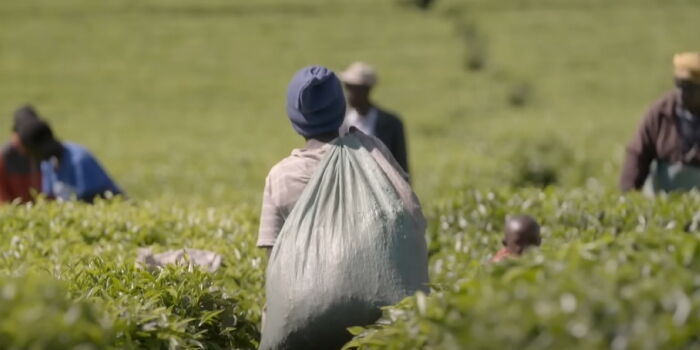Despite being the largest export commodity in Kenya, a backlog of over 15 million kilograms of unsold tea persists as of October 2024. This amount of tea is enough to brew an astonishing 7.5 billion cups.
In a report by Bloomberg on Tuesday, this worrying trend can be attributed to a directive issued in 2021 that set a minimum price for the commodity to cushion farmers from losses in the oversupplied market.
This effort has since been withdrawn easing the backlog that had risen to about 100 million kilograms at its peak. The $2.43 (approximately Ksh313) per kilogram reserve price had been applied to all the tea supplied by small-scale factories under the Kenya Tea Development Agency (KTDA) which amounts to up to 60% of the tea produced in the country.
As per estimations, the backlog could take up to mid-next year to clear. Besides hurting the economy, this could also mean that the quality and the taste of the tea would decline heavily hurting its price as there is always fresh produce available at auctions.
A cup of tea served hot.
File
According to Jem McDowall, the vice president of trading at Bronxville, the efforts by the government to set a reserve price on the commodity coupled with the overproduction of tea in the country not only tanked farm prices globally by between 10 per cent to 30 per cent but also compounded to the global supply and demand mismatch at the heart of the problem.
“A minimum price was a political intervention that they could do to try and help the farmers. Not enough has been done to say, hey, we are producing too much tea, we need to pull back,” Mcdowall stated.
The highest backlog reported in 2024 was in late July when 60% of unsold tea was recorded.
This happened in Mombasa where all the produce is auctioned weekly drawing suppliers from all over East Africa including Uganda, Tanzania, and Rwanda.
Other members of the East Africa Tea Association that participate in the weekly auction are Burundi, Malawi, Ethiopia, the Democratic Republic of Congo (DRC), Mozambique, and Madagascar.
With the biggest exporter of black tea at the stake of losing the quality of its tea, the implications are massive, and would possibly require another government intervention to gradually do away with the backlog in a timely fashion.
“There are quite severe implications for the Kenyan industry unless they can somehow move all this excess tea, rein in the amount of tea that they produce, increase the quality, and get a better price. This is not an easy conundrum to sort out,” McDowall noted.
The price itself has fluctuated over the past nine months ranging from $1.97 (Approximately Ksh254) to $2.24 (Ksh289) per kilogram. It sold at an average price of $2.49 (Approximately Ksh321) in 2022 and slipped to $2.24 (Approximately Ksh289) in 2023.
A section of a tea plantation in Kericho County
Photo
OT Advocates



























